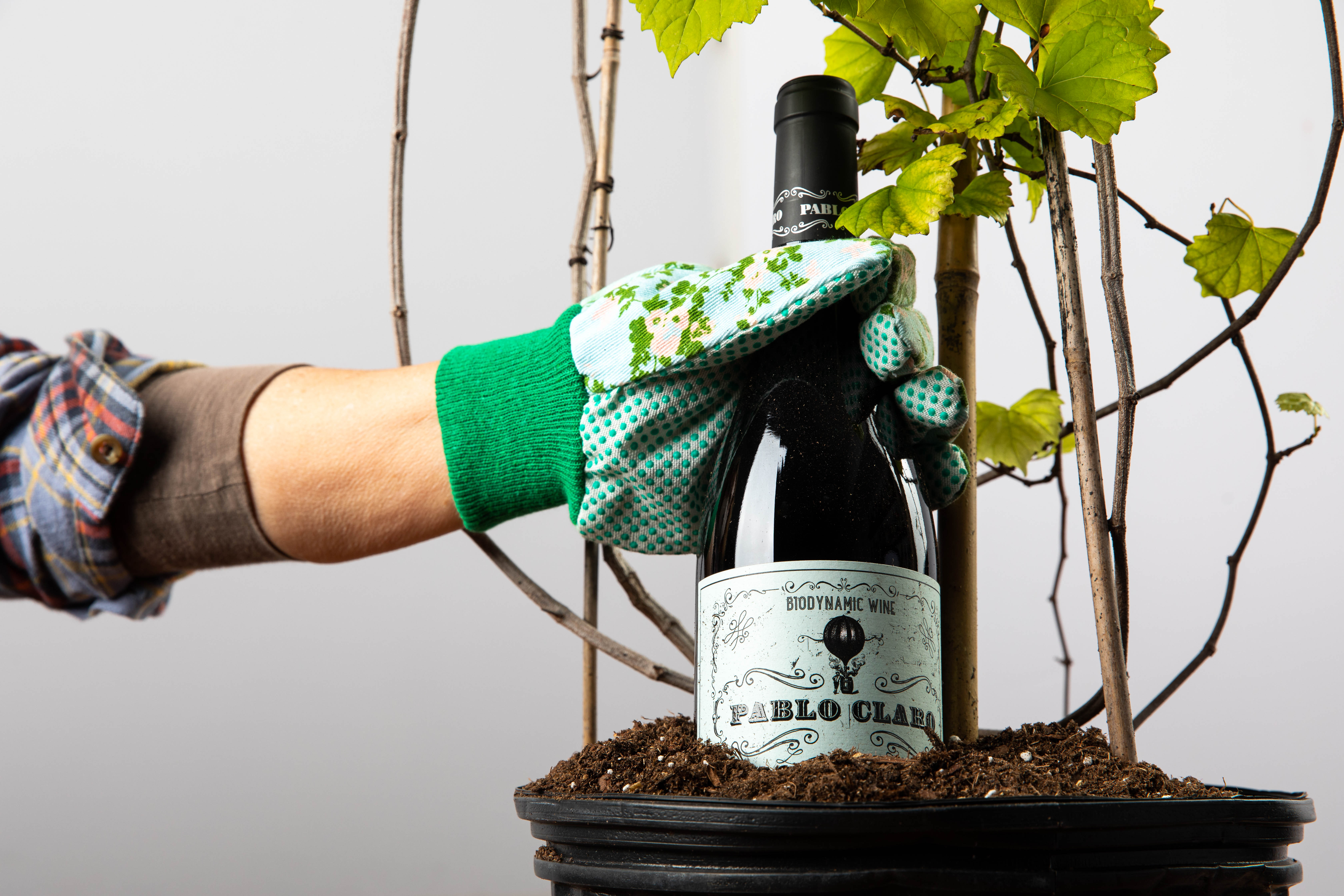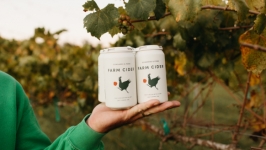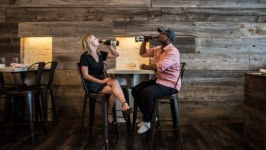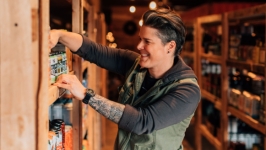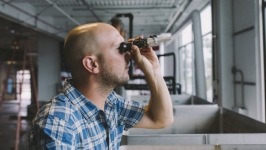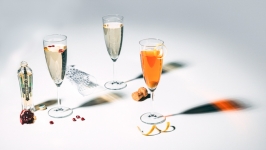Natural Wines: A Sip for Sustainability
Walk into your favorite wine shop these days and you might see bottles labeled “natural” or “organic.” You might think to yourself that all wine is natural, coming from a single ingredient, the fermented grape. But this is not the case. In fact, unless you study the history of winemaking, you might be surprised by the levels of processing and additives that are commonplace in the wine industry.
Tasting wines designated as "natural" can be an eye-opening experience; at least it was for me. The variations in flavor and style of these wines compared to what I had previously imbibed was the first hook. Then later, learning the stories, ethoses and overall differences between natural and conventional wine making eventually led me to shift my career and open a natural wine shop and club.
Wine is a commodity in high demand, so anything that can shorten the time from harvest to shelf means more output and ultimately higher profit margins for wine brands. That is the approach in conventional wine making, and it doesn’t always translate to sustainable growing practices. When you encounter a wine that tastes the same five or ten years in a row, regardless of unique climate impacts each year like varying temperatures and rainfall, it’s time to start asking some questions about how it was made and how the land was treated. The conventional approach relies upon technical intervention in the process of growing and producing wine. One key component of natural, organic and winemaking, on the other hand, is the practice of using what the land provides while committing to producing wines without intervention.
If all processing and additives are removed from the winemaking process, then is it natural? No, not exactly, especially since there is no legal definition of natural wine. The foundation of natural wine begins with sustainable farming practices that emphasize thriving soil systems and flavorful crop selections to create delicious wines without anything added or removed. Natural growers understand that the key to the best fruit is biodiversity that takes varying forms including cover crops to attract pollinators and free roaming animals like chickens, pigs or sheep that provide natural aeration and fertilization. Some growers work the vines by hand and with horses to prevent damage to the delicate ecosystem. But at a minimum, natural winemaking means the total elimination of chemicals like herbicides, pesticides and chemical fertilizers.
While it’s not the easiest way, the goal of sustainability in grape growing is centered on preserving the health of the soil and overall biodiversity of the land for future generations.“It takes more energy and money to do everything by hand,” says natural grower Natalie Milan of Domaine Milan. “Working naturally means less fruit, but higher quality overall. By planting herbs, fruit and vegetables between vines we are helping to maintain a fertile ecosystem that will attract insects and animals to the vineyards to pollinate and fertilize naturally. Our soil is the most important thing to us. We refuse to have chemicals in our soil, water and food. We will always farm this way and continue to further our education.”
As a seller of natural wine, that is the meat of it for me: knowing that with each bottle of wine I choose to drink or sell from growers like Natalie, I’m partnering in this mission to ensure the existence of living soils and vines for another millennia to come.
KATHRYN’S NATURAL WINE RECOMMENDATIONS
DOMAINE MILAN Haru Rosé – 2019
A rule breaker from Provence, France, made with Grenache, Syrah and Merlot grapes. A rosé with personality for winter that features concentrated red fruits and white flowers; elegant and refreshing.
GUT OGGAU Atanasius – 2018
A Zweigelt and Blaufränkisch blend from Burgenland, Austria. Slightly fizzy, with candied red fruits, blackberry and subtle earth notes.
DOMAINE BOBINET Poil de Lievre – 2019
100% Chenin blanc from Saumur-Champigny, France. Aromas of fresh flowers, apples, pear and almond;an elegant minerality.
WHERE KATHRYN FINDS NATURAL WINE LOCALLY
Jacksonville:
• Kathryn’s Wines | kathrynswines.com
• Bernie’s Wine Stop | 1080 Edgewood Ave S #8, Jacksonville
• Town Beer Co. | 1176 Edgewood Ave S #4, Jacksonville
• Royal Palm Village Wine & Tapas | 296 Royal Palms Drive, Atlantic Beach
St. Augustine:
• The Floridian | 72 Spanish St
• DOS Coffee & Wine | 300 San Marco Ave
• Llama Restaurant | 415 Anastasia Blvd
• Michael’s St. Augustine | 25 Cuna St
• La Cocina International Restaurant | 530 A1A Beach Blvd


